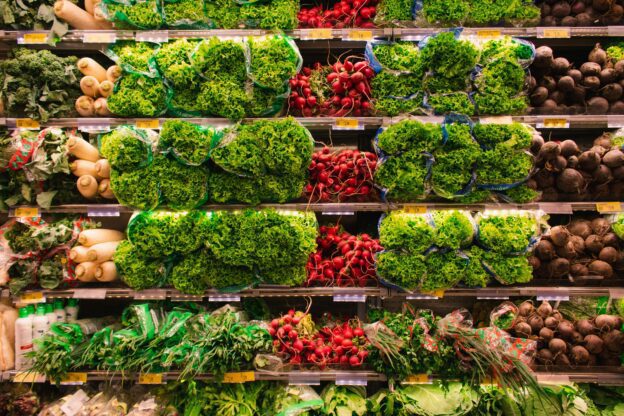Is it the right time to regulate the food and drinks sector? GK Associate Daniele Schmidt-Fischer takes a look in our latest GK insights piece.
With Covid fading from the Government’s agenda, ministers are again turning their attention to pre-pandemic legislative proposals. A sector that will be in the limelight will be the food and drinks industry, which will be incentivised to reformulate its products, reduce single-use plastic, and guide the consumer to make healthier choices. Given the regulatory uncertainty of the past few years, the industry should be well-prepared to weather the forthcoming provisions. However, the Government does not make it easy for a sector which is hit by a triple-whopper of pandemic recovery, Brexit-related labour and supply disruptions, and an avalanche of regulatory changes which assimilate the tobacco playbook.
On 1 April, the Government published guidance on the introduction of a tax on plastic packaging from April 2022. This will apply to plastic packaging manufactured in, or imported into the UK, that does not contain at least 30% recycled material. The charge for the tax, which only applies to “finished” plastic and mixed-plastic packaging components (containing mostly plastic by weight), at a rate of £200 per tonne, arises when the component is imported into or produced in the UK.
A few days later, on 6 April, new rules requiring calorie information to be displayed on menus and food labels came into force. The changes – which were approved by Parliament in 2021 – mean it is now a legal requirement for large businesses with more than 250 employees, including cafes, restaurants and takeaways, to display calorific information about non-prepacked food and soft drinks.
On the same day, the UK Department of Health and Social Care published guidance which includes the long awaited details on the forthcoming High in Fat, Salt and Sugar (HFSS) food regulations, including restrictions on volume offers and new rules on placement and promotion. The regulations – Food (Promotion and Placement) (England) Regulations 2021 (SI 2021/1368) – confirmed that from 1 October 2022 provisions regarding the placement and promotion of HFSS products will affect manufacturers selling products direct to consumers and retailers in England with 50 or more employees. Additionally, HFSS products will be banned from tills and aisle bays to reduce impulse buys. The clampdown on store promotions was originally scheduled for April 2022 but a six-month delay was agreed last June to allow businesses more time to adapt. The new guidance has clarified that products which have volume promotions printed on the packet will be subject to a sell-through period of 12 months to October 2023.
There is more information about what constitutes a ‘relevant special offer’ such as a ‘meal deal’ or ‘dine in for two’ promotion, although the guidance states that each individual case will be assessed by enforcement officers. Businesses should carefully assess which products are caught by the restrictions and what changes will be required, for example, changes to store layout and/or website design, and changes to planned marketing and placement etc., in order to comply.
Adding to the above, the Government is due to publish a white paper on its National Food Strategy next month which is part of its recent efforts to build a food system fit for the 21st century. The white paper, which lays out plans for future legislation, is expected to draw heavily from a National Food Strategy review released in July 2021. The report, authored by Leon founder Henry Dimbleby, made a series of recommendations for transforming the food system, including new taxes on sugary and salty foods.
The regulations are part of the Ministerial wider strategy to tackle obesity, published in 2020, and follow last year’s Government’s consultation on the rules. The aim is to reduce excessive consumption of HFSS products that can lead to children becoming overweight and even obese. Further, the Government wants businesses to help people make healthier choices and join the efforts to reduce obesity,
The regulations are meant to curb the rising obesity rates, which the Government highlighted to be “one of the greatest long-term health challenges this country faces”. Prime Minister Boris Johnson, a sceptic of so called ‘nanny-state’ interventions, was said to have become passionate about the issue after his severe bout of Covid. The latest available data found that 36.2% of adults in England are overweight, with the impact of the pandemic on obesity levels still unknown. Accordingly, action remains essential, but critics are likely to argue whether now is the right time to introduce measures that will increase the industry’s costs and, hence, the prices paid by consumers – who are already facing a major cost-of-living crisis.” The Government itself found that the abovementioned regulations could hit businesses across the country by costs of over £1bn a year, while food associations also argue that these proposals are not expected to impact rates of obesity, thus nulling their sole purpose.
Overall, the regulatory ambitions are in good faith. However, during a time of worker shortages and supply disruptions, their timing is far from ideal. They put further pressure on businesses, which are likely to pass it on to the consumer in form of higher prices, all during a time when the public has become a lot more conscious about the cost of living, especially food.



